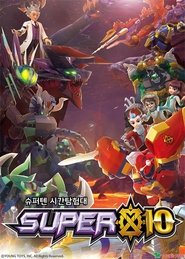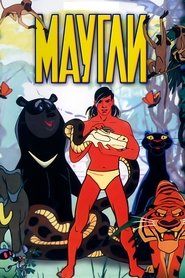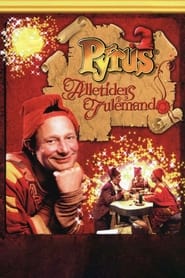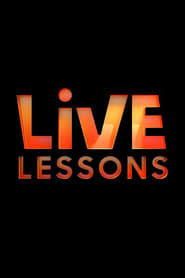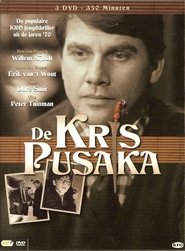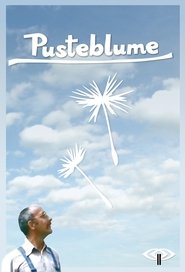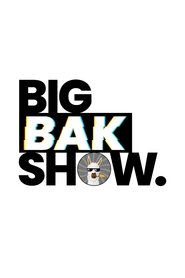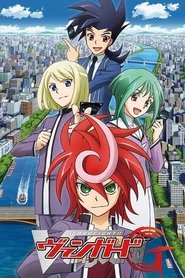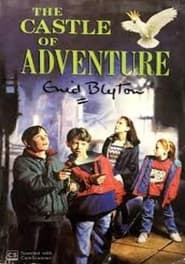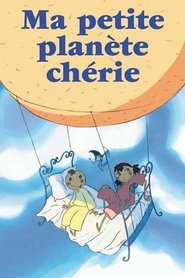Kids TV Series - Page 188
-
Super 10
2021
Super 10
2021
Every planet's energy is powered by its own Super Stone that lies in the center of its core. Each stone holds the key to maintaining the balance of all life. If the Super Stone is stolen or destroyed, the planet itself will crumble and crack into millions of pieces, floating through space! -
BBB 삼총사의 모험
2018
BBB 삼총사의 모험
2018
-
Adventures of Mowgli
1967
-
Oda Omvendt
2018
Oda Omvendt
2018
-
Pyrus: The Greatest Santa Clause
1997
star 7.7Pyrus is a young elf who lives in The Danish National Archives, where Chief Archivist Birger Bertramsen work alongside his new assistant Josefine Brahe. The young elf lives together with the old Archivist elf Gyldengrød and the elf girl Kandis, who just moved in and the. Pyrus complains that he cannot get Christmas-presents, as Santa Claus doesn't give presents to elf's. Pyrus tries to conjure him with the help of a magical book to talk to him, but unfortunately Santa Claus is already in the National Archives when he does, which results in Clause losing his memories. Now the elf's must help Clause regain his memories by visiting historical events using the books in the archive. They meeting Saint Nicholas (the predecessor of Santa Claus), La Befana (who comes bearing gifts in Italy) and the American Santa Claus. -
Kid Fit Go
2023
Kid Fit Go
2023
Kid Fit Go invites audiences of all ages to get up and get moving! Join our kid instructors for a fun approach to exercise. -
Live Lessons
2019
Live Lessons
2019
Live, interactive programmes devised by BBC Learning to support teachers and bring curriculum content to life, directly to your classroom. With access to leading experts and some of the BBC's biggest brands and talent, Live Lessons are a shared learning experience for schools all over the UK. -
Kamen Rider Club Meeting: Quiz, Kamen Rider Urban Legends!!
2012
A bonus corner featured in the Kamen Rider Fourze DVDs, in which the Kamen Rider Club takes a look at the Showa Riders. -
Infinity Nado 6
2022
Infinity Nado 6
2022
star 7飓风战魂之剑旋陀螺 is a Chinese animated series produced by Alpha Group Co., Ltd. and the third and most recent installment of the 战斗王之飓风战魂 (known as Infinity Nado internationally) franchise. The series premiered on iQiyi on October 27, 2022. The first season to be animated in CGI, it consists of 52 13-minute episodes in one season. The series follows Lin Dongfang, a teenager who wants to become a World Nado champion. As he travels in the country with his Nado master, he meets young Nado players who will all impact his progress and make new friends along the way. -
Petronella Apfelmus
2020
Petronella Apfelmus
2020
-
De Kris Pusaka
1977
-
Pusteblume
1979
Pusteblume
1979
-
宝宝巴士汽车家族
2022
宝宝巴士汽车家族
2022
-
Sports Lab
2015
-
Kamen Rider Gavv: Transformation Lessons
2024
Kamen Rider Gavv: Transformation Lessons is a spin-off of Kamen Rider Gavv, which was released on Bandai JP's official YouTube channel. -
BigBakShow
2025
BigBakShow
2025
-
Cardfight!! Vanguard G
2014
Cardfight!! Vanguard G is the fifth season of Cardfight!! Vanguard and the first season of the G series. and the first chapter of The TRY 3 Saga. It aired in Japan from October 26, 2014, to October 4, 2015, for 48 episodes. -
The Castle of Adventure
1990
Based on the children's adventure novel by Enid Blyton, five young children come to learn the secrets of a ruined castle. -
My Little Planet
1997
